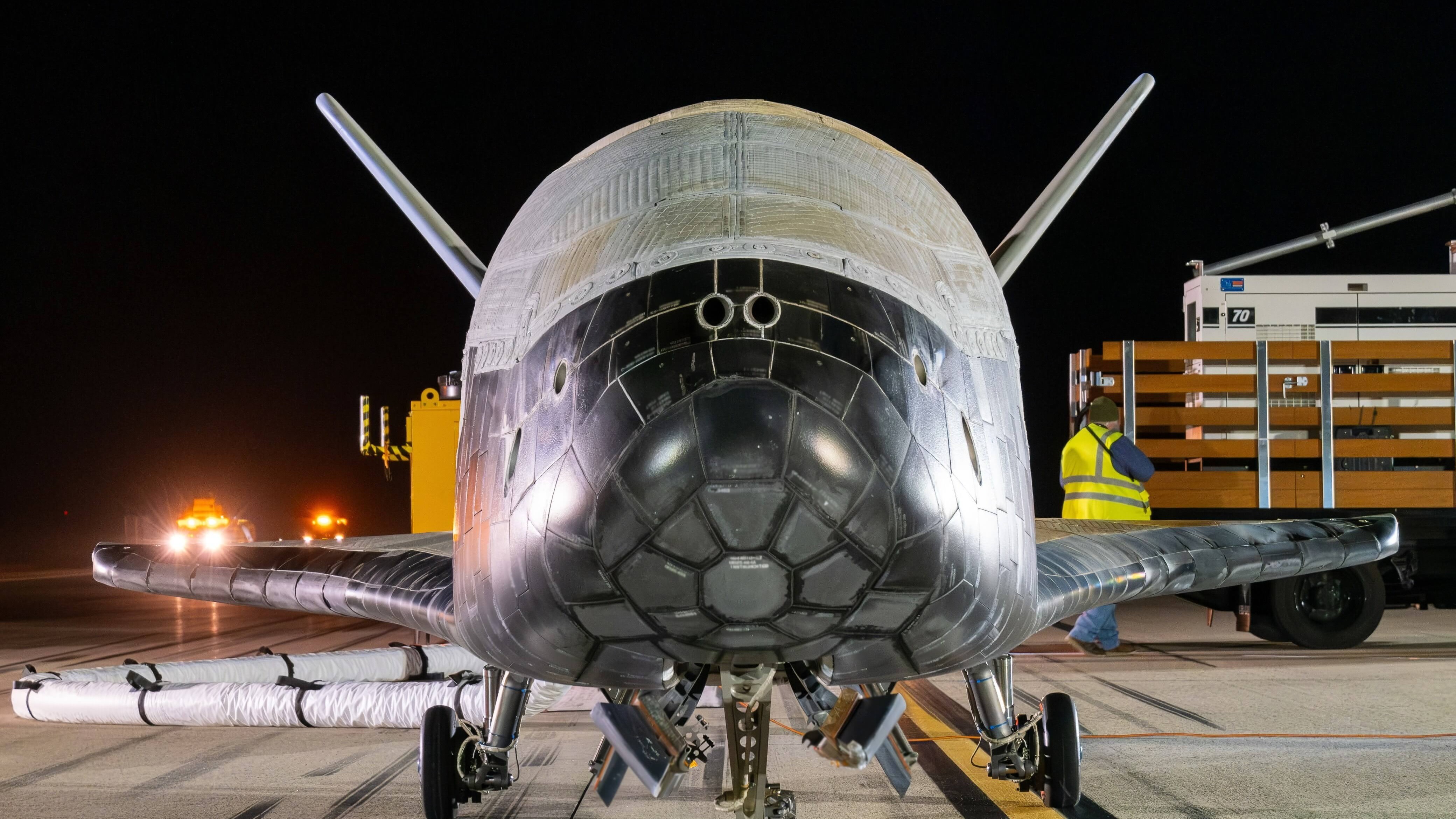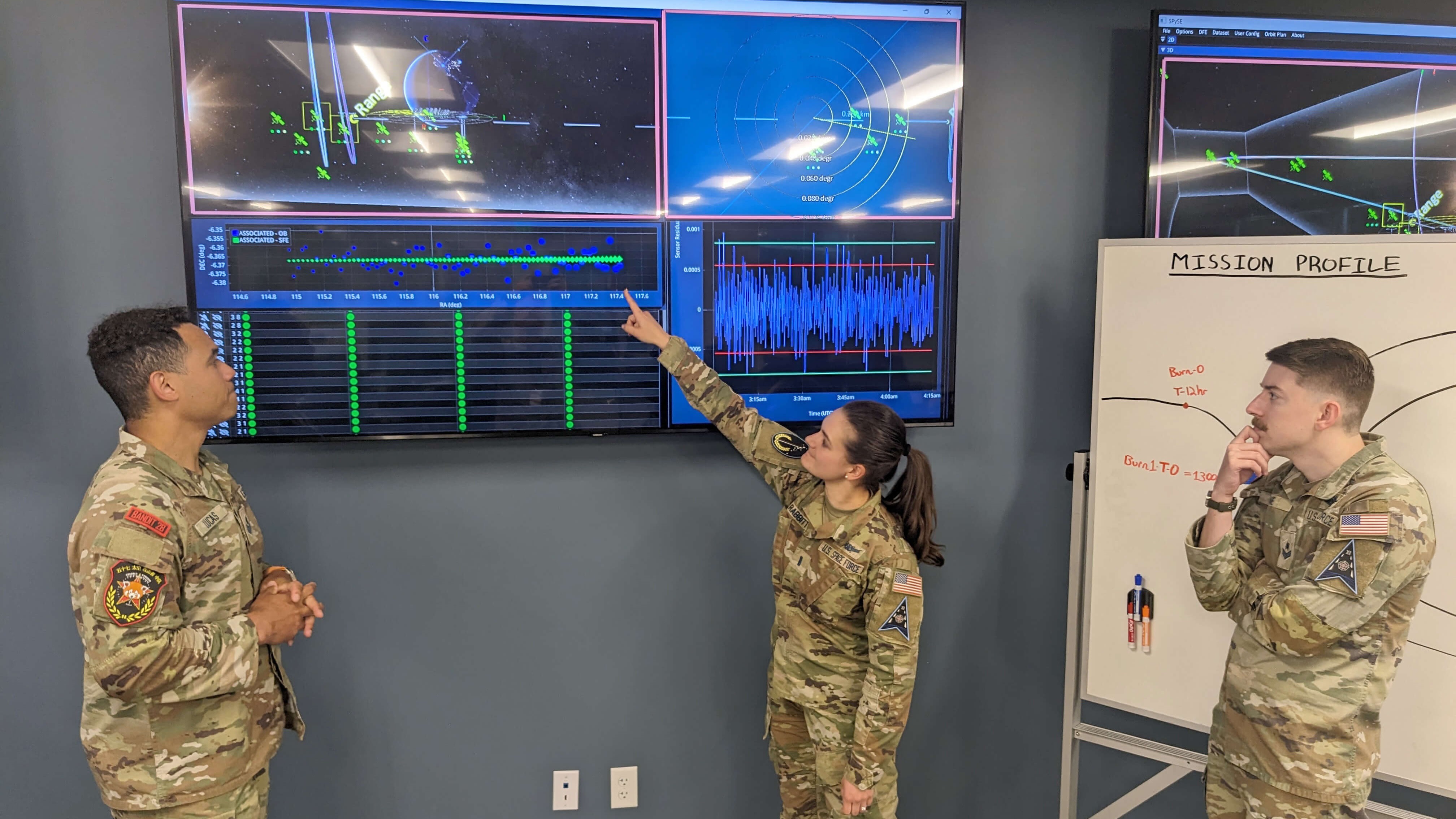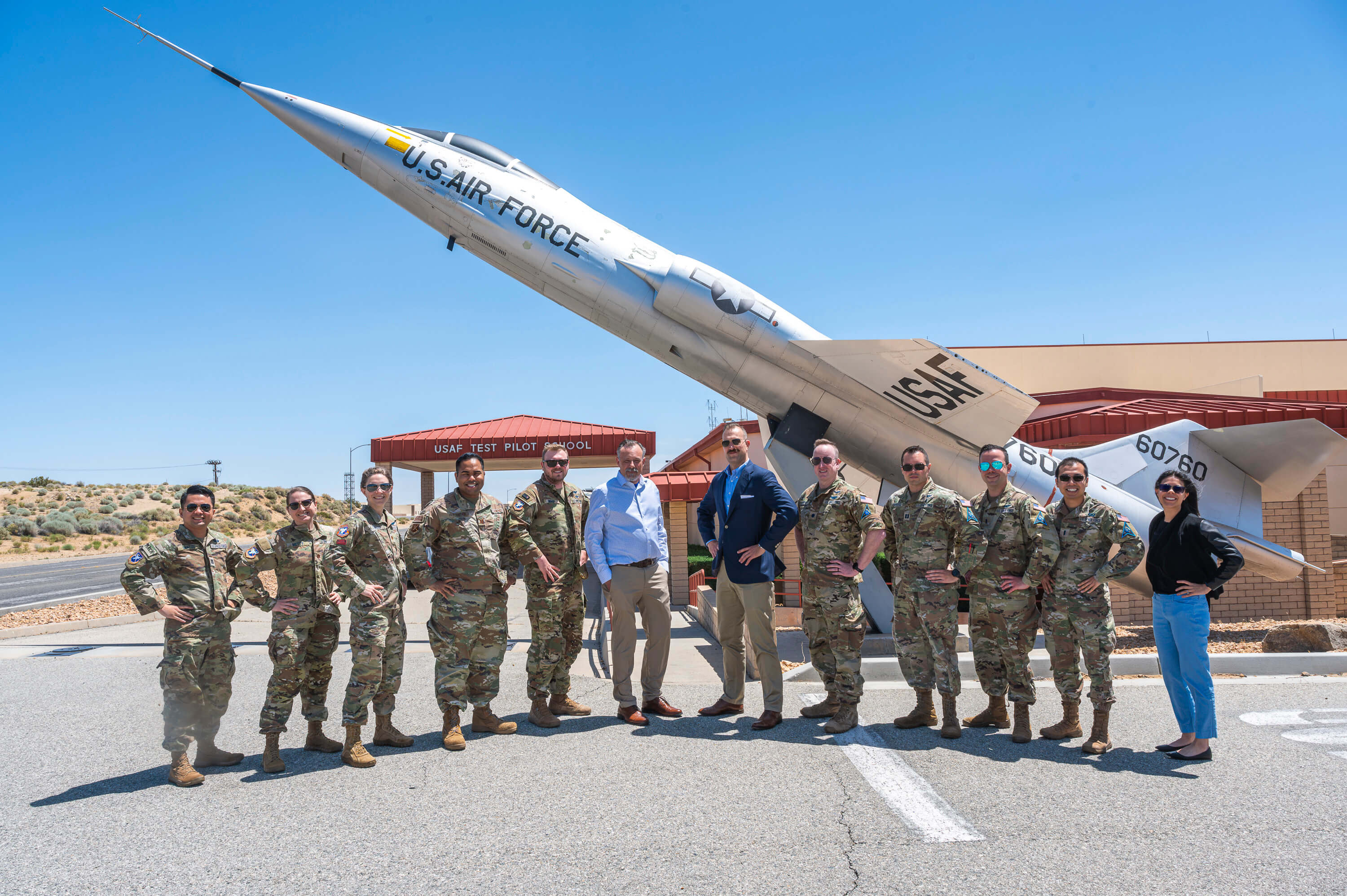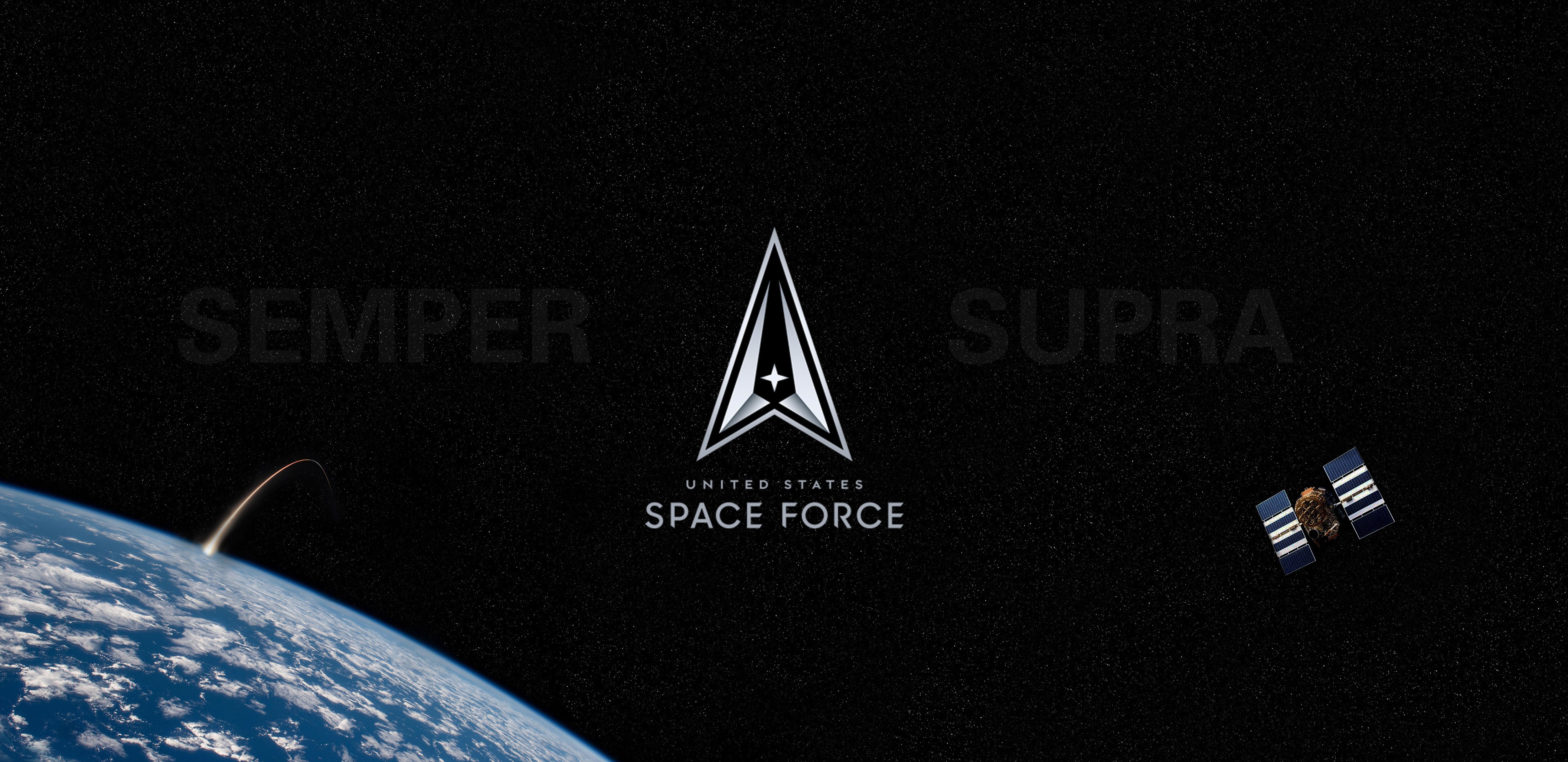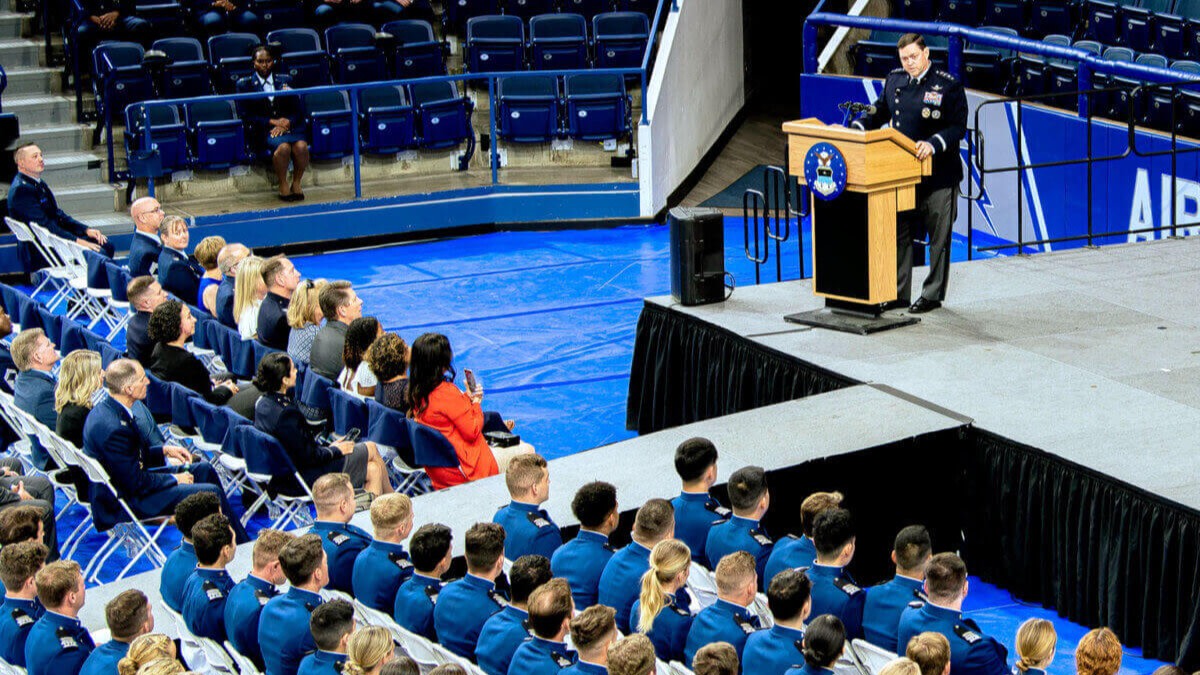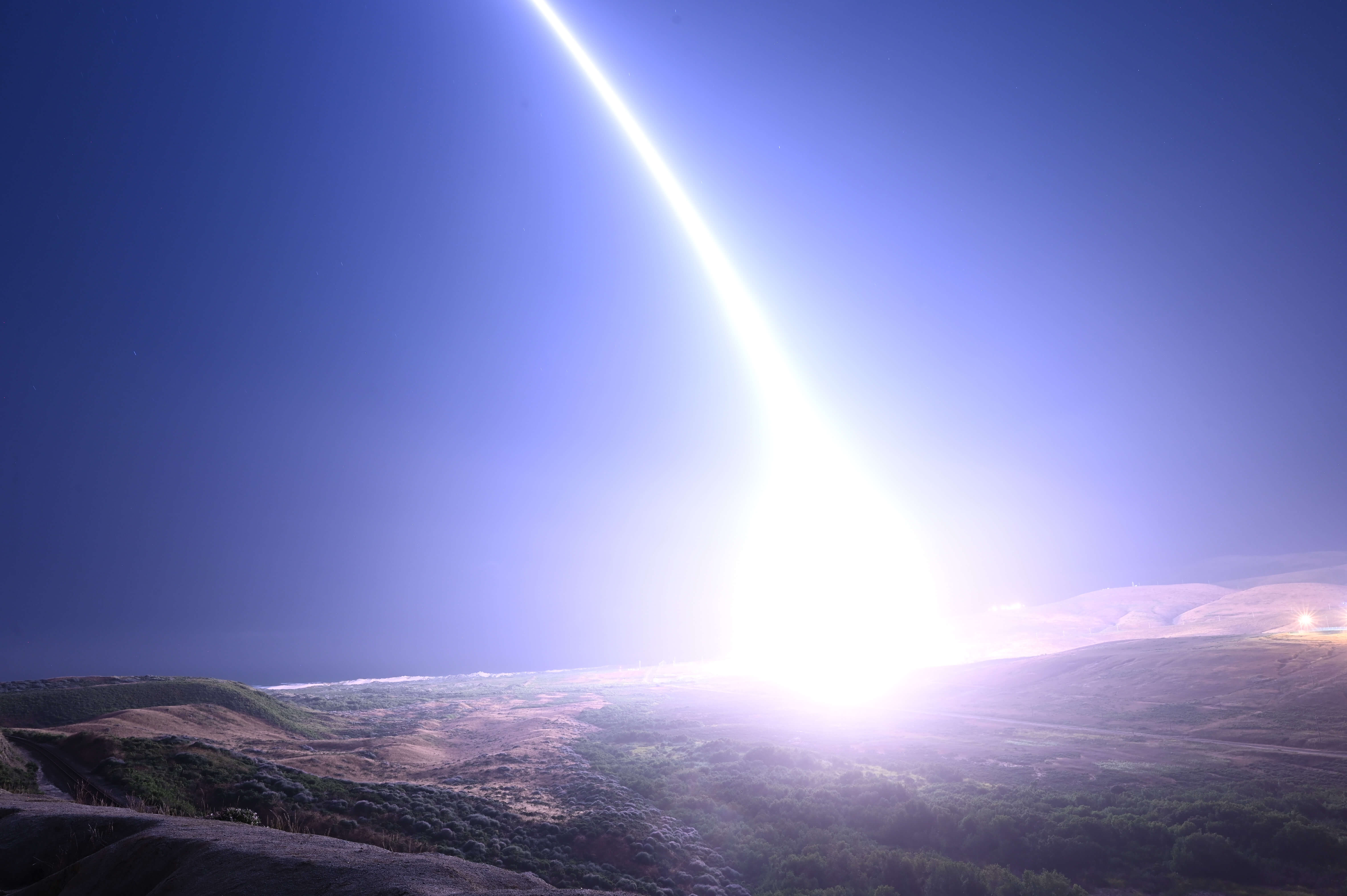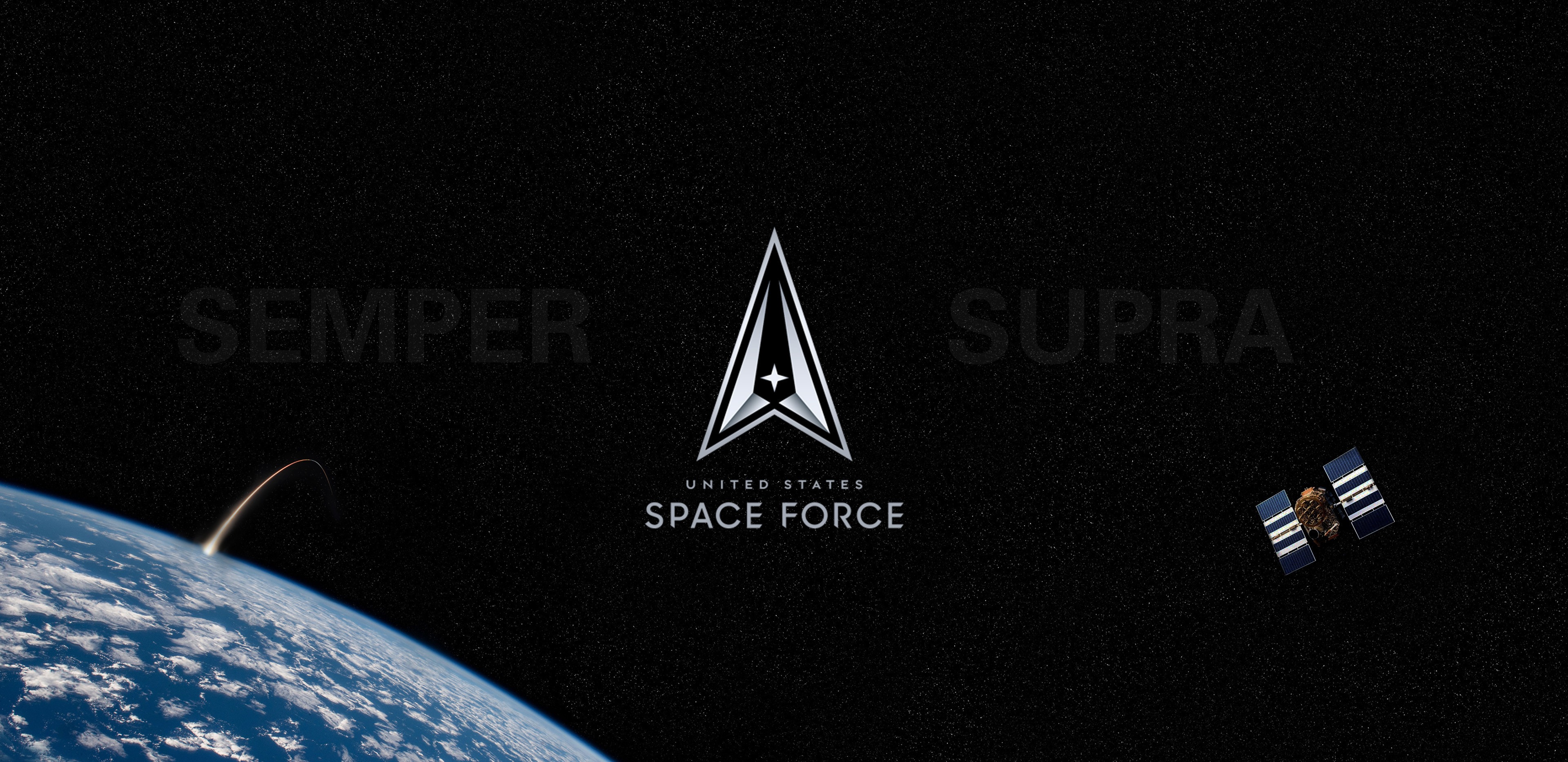
0 min read
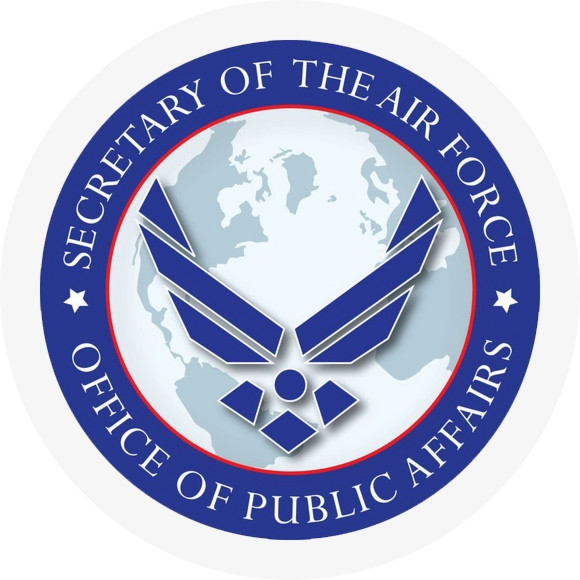
Air Force
Secretary of Public Affairs
Assignment Incentive Pay to be authorized for Airmen, Guardians stationed at extremely cold locations
ARLINGTON, Va. (AFNS) --
Effective April 1, the Department of the Air Force approved a new incentive pay for Airmen and Guardians assigned to qualifying bases in the U.S. where the temperature is expected to drop below minus 20 degrees Fahrenheit.
Cold Weather Assignment Incentive Pay is a single lump sum payment given to Airmen and Guardians after signing an agreement to serve a prescribed tour length of at least 12 months, depending on qualifying location.
Locations that meet this threshold include Minot and Grand Forks Air Force Bases and Cavalier Space Force Station in North Dakota, Clear Space Force Station, Eielson Air Force Base and Joint Base Elmendorf-Richardson in Alaska, as well as Malmstrom AFB, Montana.
“Airmen and Guardians living in extremely cold conditions faced unique out-of-pocket costs,” said Alex Wagner, Assistant Secretary of the Air Force for Manpower and Reserve Affairs. “In addition to the assignment and retention benefits of the pay, it also comes down to making sure we do our best to take care of our service members and their families stationed at these critical installations.”
This payment intends to ease the financial burden of purchasing certain cold weather essentials, such as extreme cold weather gear, all-season and/or snow tires, tire mounts and alignments, engine block heaters and emergency winter car kits, as well as further incentivizing assignments.
Although AIP-CW is effective April 1, the first pay date is anticipated for July 1, 2024, meaning Airmen and Guardians who move to a qualifying location between April 1 and June 30 will receive payment retroactively.
The amount of AIP-CW Airmen and Guardians are eligible to receive is based on criteria in the five pay levels outlined in the table below and is subject to change.
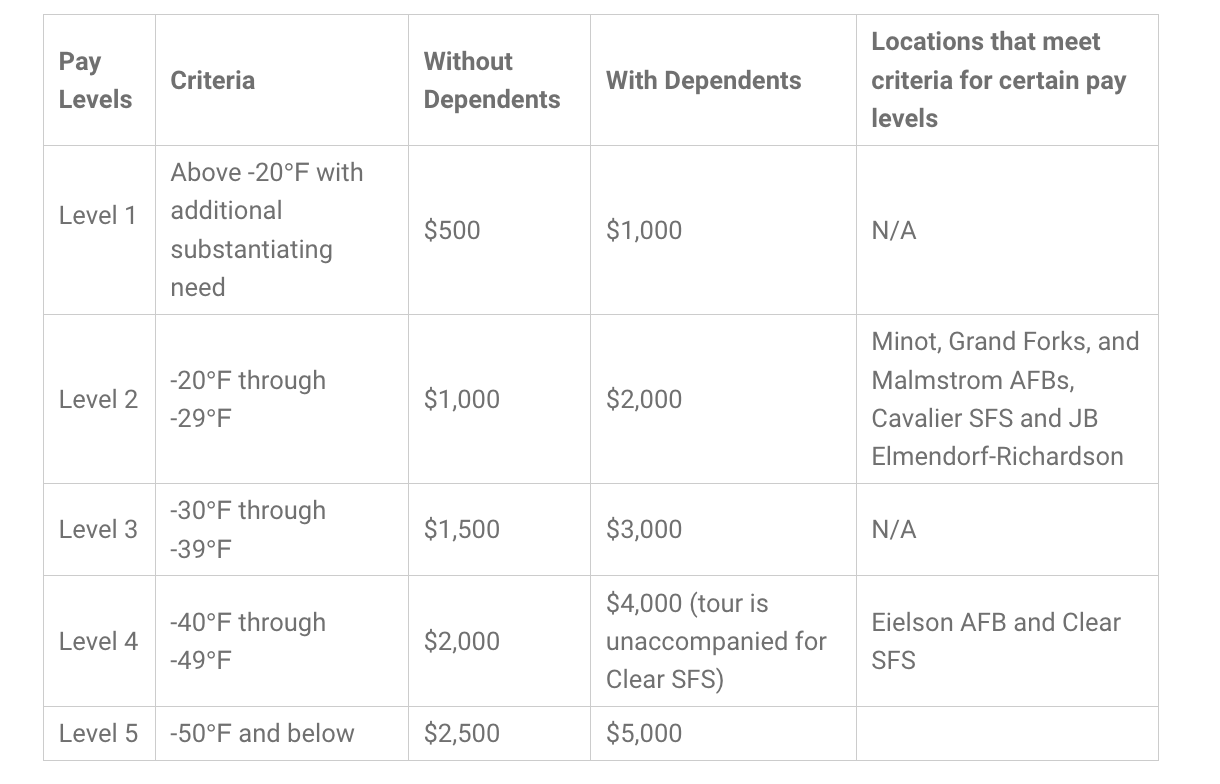
This change follows the Department of Defense implementation of the Fiscal Year 2023 National Defense Authorization Act, which included language authorizing special duty pay for members based in cold-weather climate conditions and the FY24 NDAA, which clarifies the temperature parameters that qualify an area as a cold-weather location.
“We want to ensure Airmen, Guardians and their families have the resources needed to safely live and work in an extreme cold-weather environment,” Wagner added.
The official guidance memorandum can be found here.
Share Article
Article Tags
